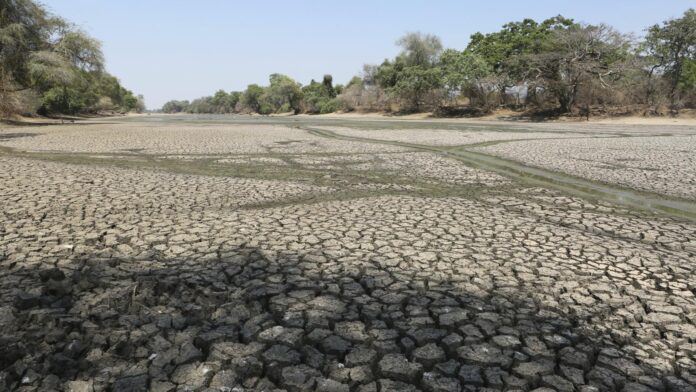Africa has 20 natural disasters out of 100 disasters reported worldwide, but Africa suffers 60% of all disaster-related deaths. These may be attributed to a number of issues, including a lack of event reporting and a lack of action by government agencies.
Although Africa’s natural hazards are mainly epidemics, endemic diseases, drought, floods, agricultural pests and bush fires. Some places have been identified as being vulnerable to earthquakes, cyclones, and volcanic eruptions.
The continent’s 53 countries have become exposed to complex disease cycles and calamities that harm people both directly and indirectly. For example, in the first six months of 1996, meningitis had killed nearly 5,000 people. Each year, around 500,000 measles-related deaths are recorded across Africa. Malaria has become so widespread that yearly direct and indirect expenses are expected to reach US$ 1.7 billion.
Shop up to 30% home decors on Amazon. Offer valid from Nov 8 -30
Other diseases such as Ebola, Chickenpox, HIV AIDS, Covid-19 and others were better managed as compared to other continents.
The continent has also experienced a few natural disasters that claimed lives that shook the continent like the March 14, 2019, Idai cyclone. We remember the lives lost and the devastating impacts it caused on the affected.
Below are 10 of the deadliest natural disasters in African historical events:
1960 Agadir Earthquake

A severe earthquake rocked Agadir, a city in western Morocco, on February 29, 1960. It demolished most of the city and surrounding territories. It was a short-duration quake that lasted about 15 seconds, yet it killed over 12,000 people and wounded or displaced almost 40,000 others. This made it the most damaging and deadly earthquake in Moroccan history.
1966 Toro Earthquake
A 6.8-magnitude earthquake struck exactly on the border between Uganda and the Democratic Republic of the Congo on March 20, 1966, killing around 150 people. The first quake’s aftershocks killed an additional 100 people. Tanzania, Rwanda, Burundi, and Kenya were all affected by the big earthquake. It collapsed buildings and homes while its landslides resulted in clogged roadways.
1984 Cyclone Kamisy
Cyclone Kamisy happened in April 1984 and lasted around two days. The biggest tropical storm to hit Madagascar in a century hit the coast in the northern region of the nation near Diego Suarez, about 68 people died and 100,000 were homeless as a cause. In less than a day, Cyclone Kamisy produced gusts of up to 160 mph and dumped over 10 inches of rain. It damaged cities and villages throughout the north, costing an estimated $250 million in losses.
Click to learn more historical events of Africa
2000 Cyclone Leone – Eline

800 people were killed and 300,000 were evacuated, when Cyclone Leon-Eline slammed Mozambique and Madagascar in 2000. Homes were destroyed, and whole villages were flooded. Storm Leon-Eline, the longest-lived tropical cyclone in the Indian Ocean on record, had an impact on South Africa as well.
Officials in Mozambique claim the situation was worse since the nation was still recuperating from Cyclone Connie. Madagascar has also witnessed more cyclones than any other country in Africa; like the Kenneth cyclone, Idai cyclone, Connie cyclone and the cyclone Leone-Eline
2010 – 2011 South Africa Floods

A massive downpour triggered by a La Niña event in South Africa in December 2010 killed around 141 people. Costing moreover $200 million in damages. KwaZulu Natal, a South African coastal province, was severely affected. Many residents were forced to flee as a result of the heavy rainfall and overflowing rivers. The South African government declared over 30 disaster zones in eight of the country’s nine provinces.
2011 Droughts in Eastern and Southern Africa

Severe and widespread drought plagued the whole East African region between July 2011 and mid-2012. The drought was extremely severe in Somalia, Ethiopia, Kenya, Eritrea, and Djibouti. The crisis triggered a serious food crisis in the region, whilst the UN declared sections of southern Somalia an official famine zone. According to officials, between 50,000 and 100,000 individuals died as a result of the crisis, with more than half of them being children under the age of five.
2012 Nigeria Flood
The 2012 Nigeria floods began in early July 2012. It killed about 363 people and displaced over 2.1 million people as of 5 November 2012. The flood covered about one-third of the country 36 States. Benue, Taraba, Adamawa, Plateau were most affected. States surrounding the Rivers Niger and Benue continues to suffer as the flood continues to reoccur.

2015 Ghana Flood and Fire Disaster

On June 3, 2015, the entire country was in a state of shock and sadness. An extraordinary catastrophic flood and fire explosion killed 152 people. Plastic waste blocked sewers, and bad city architecture were all blamed for the calamity.
2017 Sierra- Leone Landslide

In August 2017, a mudslide and flood disaster destroyed Regent, a mountain village just outside of Freetown, Senegal, killing an estimated 1,000 people and affecting 6,000 more. The disaster, which experts blamed on environmental degradation and poor planning, displaced thousands of people while the destruction it caused put hundreds of thousands of people at risk of a cholera outbreak.
2019 Idai Cyclone
Tropical Cyclone Idai made landfall in South-Eastern Africa, becoming the worst storm to strike Southern Africa. Idai killed 602 people in Mozambique and 299 in Zimbabwe. The cyclone also destroyed 90% of Mozambique’s second-largest port.
